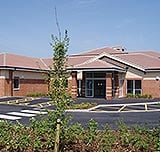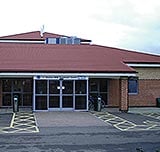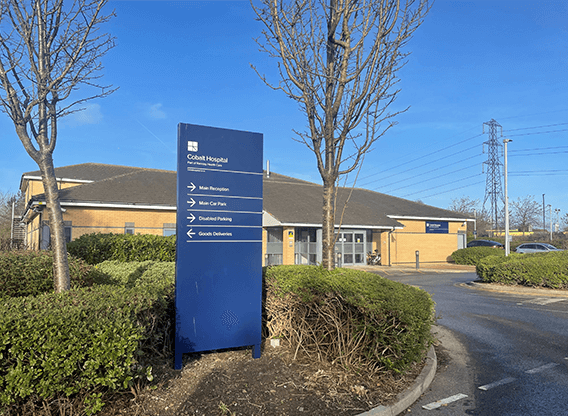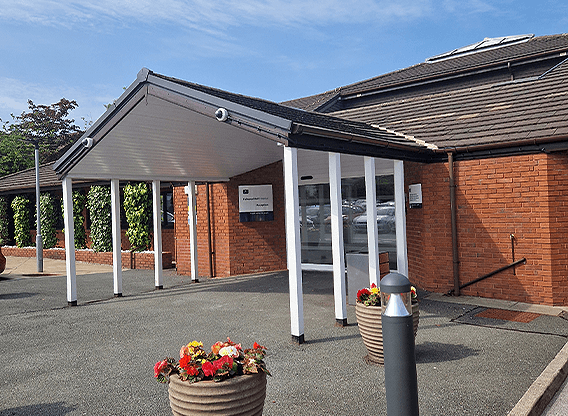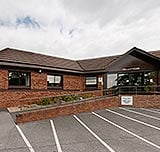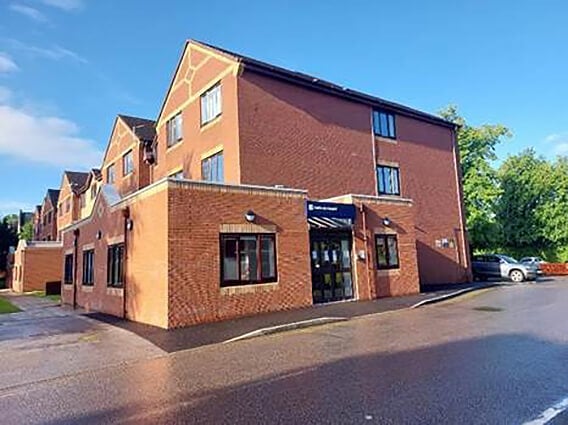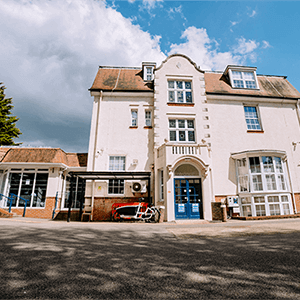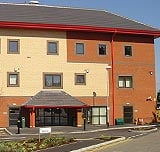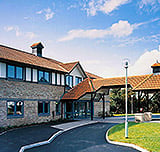A cortisone injection is a targeted treatment used to reduce inflammation and relieve pain in your joints and soft tissues. Often recommended for conditions like arthritis, bursitis, or tendonitis, cortisone injections can help restore comfort and mobility, especially when other treatments haven’t provided relief.
Common areas for injection include the knee, shoulder, hip, and plantar fascia. Whether you're considering a cortisone injection in your knee to ease joint stiffness or cortisone injection shoulder treatment to improve your range of motion, this therapy can make a can help you to move, work, and enjoy daily life.
If you're living with persistent pain or inflammation, speak with a healthcare professional to explore whether cortisone injections are right for you. Personalised care ensures the best outcome for your condition and lifestyle.
What is a cortisone injection?
If you’re wondering what does a cortisone injection do, the answer is simple: it helps reduce inflammation and relieve pain. Cortisone is a type of corticosteroid, sometimes referred to as a steroid injection or cortisone shot. It is a powerful anti-inflammatory medication, used to treat swelling and irritation in your joints, tendons, and soft tissues.
During the procedure, a healthcare professional injects cortisone directly into the affected area, often guided by ultrasound or imaging for precision. The injection may include a local anaesthetic to ease discomfort during and shortly after treatment. Most patients feel relief within a few days, though the full effect can take up to a week.
Cortisone injections are commonly used to treat pain in the knee, shoulder, hip, plantar fascia, and spine. While generally safe, there may be some side effects, which your healthcare provider will discuss with you before treatment.
Recovery is usually quick, with most people returning to normal activity within 24 to 48 hours. For best results, cortisone injections are often combined with physiotherapy or lifestyle adjustments.
Learn more about Orthopaedics.
Common uses for cortisone injections
Cortisone injections are a trusted treatment for reducing inflammation and relieving pain in a range of conditions. They’re used across orthopaedics, sports medicine, and dermatology to improve mobility, comfort, and quality of life.
Joint pain (knee, shoulder, hip)
Cortisone injections are frequently used to treat joint pain caused by arthritis, impingement, or wear and tear. Whether it’s a cortisone injection in knee to ease swelling and stiffness, a cortisone injection shoulder to relieve pain from rotator cuff issues or frozen shoulder, or a cortisone injection hip to improve movement, these targeted treatments can offer lasting relief and help delay or avoid surgery.
Importantly, cortisone injections can also help diagnose the source of joint pain. When combined with a local anaesthetic, they provide immediate feedback:
- If pain relief is significant, it confirms the joint is the source and may be treatable with surgery or targeted therapy.
- If relief is minimal, it may suggest the pain originates outside of the joint, such as from ligaments, tendons, or referred areas like the spine.
This makes cortisone injections a valuable step before considering surgical options.
To learn more about joint conditions treated with cortisone, visit:
Shoulder impingement
Frozen shoulder
Hip pain
Tendon inflammation / bursitis
For conditions like tendonitis or bursitis, cortisone injections reduce inflammation around tendons and bursae - fluid-filled sacs that cushion your joints. This can restore your range of movement and reduce pain during everyday activities, especially when paired with physiotherapy.
Plantar fasciitis
A cortisone injection for plantar fasciitis can be highly effective in reducing heel pain and inflammation. It’s often used when rest, stretching, and orthotics haven’t resolved symptoms, helping patients walk more comfortably and return to activity.
Rare uses (acne, skin conditions)
In dermatology, cortisone may be used to treat severe acne cysts or inflammatory skin conditions under specialist care. These injections help reduce swelling and speed healing in targeted areas.
How is a cortisone injection given?
Cortisone injections are typically quick, clinic-based procedures designed to deliver targeted relief with minimal disruption to your day. Here’s what to expect:
Step-by-step procedure
- Preparation - the injection site is thoroughly cleaned to prevent infection.
- Local anaesthetic - a numbing agent may be applied or injected to reduce discomfort.
- Injection - the cortisone is then injected directly into your joint or soft tissue, often guided by ultrasound or fluoroscopy for accuracy.
What you might feel
During the injection, you may experience pressure, a pinching sensation, or mild pain, especially if the area is already inflamed. Most people find the procedure tolerable and brief, with discomfort lasting only seconds.
Where is the most painful place to get a cortisone shot?
Sensitivity varies by location. Areas with dense nerve endings or tight spaces, such as the sole of the foot (plantar fascia) or small joints in the hand, tend to be more uncomfortable. In contrast, larger joints like the knee, shoulder, or hip are generally less painful due to more room for the injection and fewer surface nerves.
Your healthcare provider will explain the process and tailor the approach to minimise discomfort and maximise benefit.
Recovery after a cortisone injection
After receiving a cortisone injection, recovery is usually straightforward, but a little care goes a long way in ensuring the best outcome. Here are the answers to some common questions that patients ask.
Do you need to rest after a cortisone injection?
Yes. It’s recommended to rest the injected area for 24 to 48 hours. Avoid strenuous activity, heavy lifting, or high-impact exercise during this time to allow the medication to settle and reduce inflammation effectively.
Can you drive after a cortisone injection?
In most cases, yes. If the injection was given in a joint that doesn’t affect your ability to operate a vehicle, such as your shoulder or hand, you can usually drive yourself home. However, if you feel lightheaded, sore, or had sedation during the procedure, it’s best to arrange transport.
When can normal activity resume?
Most people return to regular activities within a couple of days. Your healthcare provider may recommend a gradual increase in movement, especially if the injection was part of a broader treatment plan involving physiotherapy or rehabilitation.
For more on managing pain and recovery, visit our Pain management overview.
How long does a cortisone injection last?
Many patients ask, ‘how long does it take cortisone injection to work?’ and ‘how long does a cortisone injection last?’ The answers can vary depending on the condition being treated.
- Onset of relief - most people begin to feel improvement within 24 to 72 hours. In some cases, it may take up to a week for the full effect to settle in.
- Duration of relief - pain relief typically lasts from several weeks to a few months, depending on the severity of inflammation, the joint or tissue involved, and individual response to treatment.
For chronic conditions like arthritis, cortisone injections may be part of a broader management plan. For acute flare-ups or soft tissue injuries, a single injection may offer lasting relief.
Your healthcare provider will tailor the approach based on your symptoms, goals, and medical history.
Side effects and risks of cortisone injections
While cortisone injections are generally safe and effective, it’s important to understand the potential risks. Like any medical treatment, there are cortisone injection side effects to consider. Most are mild and temporary, but some may require closer monitoring.
Common side effects
Typical side effects from a cortisone injection include:
- Temporary pain or discomfort at the injection site
- Mild swelling or bruising
- Skin thinning or changes in pigmentation near the area.
These effects usually resolve within a few days and can be managed with rest and ice.
Rare complications
Though uncommon, more serious risks include:
- Infection at the injection site
- Tendon weakening or rupture
- Cartilage damage, especially with repeated injections.
How often can cortisone injections be repeated?
There is concern that repeated cortisone shots might damage the cartilage within a joint. For this reason, doctors typically limit the number of injections per joint. This is often three or four per year, depending on the joint, diagnosis, and individual response. Your healthcare provider will assess the risks and benefits before recommending repeat treatments.
Cortisone injections can be a helpful way to reduce pain and swelling, especially when used carefully and alongside other treatments recommended by your healthcare provider.
Cost and availability of cortisone injections
If you're searching for a ‘cortisone injection near me’ or exploring ‘private cortisone injection near me’, it's helpful to understand the typical costs and care pathways available.
Typical cortisone injection cost ranges
- NHS - cortisone injections may be available at no direct cost through NHS referral, though wait times and eligibility criteria can vary.
- Private care - according to recent research, the average cost of a steroid injection in the UK ranges from £200 to £1,500*. This variation depends on the joint or area being treated, whether image guidance (e.g. ultrasound or fluoroscopy) is used, the clinic’s location and level of specialist expertise. Some packages include consultation, imaging, and follow-up but not always, so it’s important to check whether additional fees apply.
How to find a specialist or clinic
To ensure safe and effective treatment, look for qualified orthopaedic surgeons, pain management specialists, or sports medicine consultants. You can search online, ask your GP for a referral, or explore specialists at trusted providers like Ramsay Health Care.
Ramsay Health Care offers cortisone injections across its network of UK hospitals and clinics. Our multidisciplinary approach ensures:
- Expert assessment by orthopaedic or pain specialists
- Image-guided injections for precision
- Follow-up care with physiotherapists and rehabilitation teams.
Next steps
If you're dealing with persistent or complex joint pain, consider booking a consultation at one of our hospitals across the UK. Our experienced team can help determine whether a cortisone injection is right for you and guide your recovery with tailored support.
Contact us today to speak to our friendly team for any enquries or to book a consultation or book an appointment online.
FAQs



